Gregory A. Fournier's Blog, page 54
May 8, 2012
2012 Gator-By-The-Bay Zydeco and Blues Festival
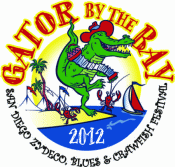 There isn't a holiday or event I look forward to more every year than the Gator-By-the-Bay Festival, held each Mother's Day weekend for many years now at Spanish Landing on San Diego Bay. Hosted by the Bon Temps Social Club, the organizers have created a music and dance event that continues to improve as the fame and the popularity of the festival spreads.
There isn't a holiday or event I look forward to more every year than the Gator-By-the-Bay Festival, held each Mother's Day weekend for many years now at Spanish Landing on San Diego Bay. Hosted by the Bon Temps Social Club, the organizers have created a music and dance event that continues to improve as the fame and the popularity of the festival spreads.The crowd includes people from all around the United States who love dancing to Creole and Cajun music or who just love listening to great live entertainment. This is a well-organized family friendly event with something for everyone.
Zydeco music is fun and easy to dance along to. Why? Because there are no zydeco police. Can't dance? Nonsense! The weekend is cram packed with free lessons located conveniently between the two main dance floor stages.
One of the main stages is for zydeco and Cajun music and the other serves up a variety of blues groups. If you don't think people dance much anymore - you really have to come here. Lessons in West Coast Swing and Jitterbug are also available throughout the day Saturday and Sunday.
If you are in the San Diego area this weekend or coming into town to visit dear old mum, bring her to the Gator Festival. Great food, colorful vendors, lovely San Diego weather, plenty of liquid refreshments, and one of the liveliest rites of spring you are unlikely to encounter anywhere else.
For more information and the talent lineup, check out the link below:
http://www.gatorbythebay.com/
Published on May 08, 2012 13:56
May 5, 2012
100th Fornology Blog Post - Zug Island Web Radio Interview
 One year ago this month, I began my blog - Fornology - and coincidentally this is my one-hundredth post. That means coming up with new content every three to four days - or an average of two posts per week. I've discovered that it is surprisingly enjoyable.
One year ago this month, I began my blog - Fornology - and coincidentally this is my one-hundredth post. That means coming up with new content every three to four days - or an average of two posts per week. I've discovered that it is surprisingly enjoyable.I began reluctantly at the prompting of my publicist, Paula Margulies, but now, posting is a natural part of my weekly routine. Sometimes, I have a definite idea of what to write about, but other times I'll see or hear something that I want to pass on to my readers. More often than not, I document what I'm doing with my writing projects: promoting Zug Island in print and on the radio, for instance, and on the writing of In the Shadow of the Water Tower, which deals with John Norman Collins, alleged coed killer from the late 1960s.
Blogging allows me the instant gratification of immediate publication and gives me an outlet to feed my writing habit. Each post is a creative micro burst which helps me build an audience for my longer works. I check my stats daily and am pleased with the steady rise in hits each month. My blog is approaching 7,000 hits.
That Russia is my second largest audience next to the United States is amazing to me. Then to see the Canadians catching up, with the Germans close behind, is like going to the races. These "audience" stats have meaning only to me, but it reminds me of the power of the world-wide web to reach out and communicate with people internationally. The Global Village has become a reality to me.
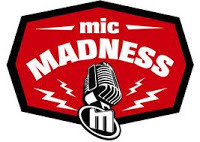 On Friday, May 4th, I did a web radio interview on the Hollis Chapman Show about my debut novel, Zug Island. My segment begins the show and is thirty minutes long. We had some minor technical difficulties early on but managed to work through them while on the air. It's live radio.
On Friday, May 4th, I did a web radio interview on the Hollis Chapman Show about my debut novel, Zug Island. My segment begins the show and is thirty minutes long. We had some minor technical difficulties early on but managed to work through them while on the air. It's live radio. http://www.blogtalkradio.com/hollischapmanshow/2012/05/04/join-our-cool-voice-over-show
Published on May 05, 2012 13:14
May 4, 2012
The Lost John Norman Collins Movie - Part Two
 Now I Lay Me Down To Sleep was writer/producer/director William Martin's attempt to tell the story of the coed killings, alleged to be committed by John Norman Collins in Ypsilanti and Ann Arbor, Michigan, between 1967 and 1969. The title comes from the well-known children's prayer.
Now I Lay Me Down To Sleep was writer/producer/director William Martin's attempt to tell the story of the coed killings, alleged to be committed by John Norman Collins in Ypsilanti and Ann Arbor, Michigan, between 1967 and 1969. The title comes from the well-known children's prayer.Martin made an earlier film in Michigan called Jacktown, the nickname for the world's largest walled prison at the time - Jackson State Prison. It was an uneasy mix of documentary footage from the Jackson prison riot in the 1950s, location shooting in Royal Oak, Michigan, and an uninspired script with wooden acting. What makes this movie fun to watch is how really bad it is.
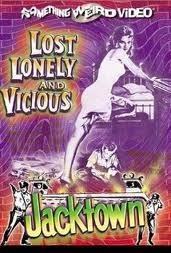 As with Jacktown, Martin used seasoned actors in the lead roles for Now I Lay Me Down To Sleep and wanted some local talent to play several of the murdered girls. Local actress, Kathy Pierce of Chelsea, Michigan, was chosen to play the role of Karen Sue Beineman, the only murdered coed Collins was convicted of killing.
As with Jacktown, Martin used seasoned actors in the lead roles for Now I Lay Me Down To Sleep and wanted some local talent to play several of the murdered girls. Local actress, Kathy Pierce of Chelsea, Michigan, was chosen to play the role of Karen Sue Beineman, the only murdered coed Collins was convicted of killing.As other writers have done in the past, Martin changed the names of the victims, which over time has obscured the girls' identities. Karen Sue Beineman was renamed Carol Ann Gebhardt in one account, Karry B. in another, and Norma Jean Fenneman in Martin's movie. By my account, the seven victims are referred to by no fewer than twenty-eight names. Is it any wonder the public is so confused about this case? John Norman Collins' character was to be called Brian Caldwell, played by veteran actor, Robert Purvey (See bio link for more information about him).
At first, Martin said he encountered lots of local resistance, but after the The Michigan Murders came out in 1976, resistance became pointless. Then, Collins' lawyers tried to get an injunction against the film because it prejudiced the appeals process against their client. At his own expense, Martin, offered to close down production of his film if John Collins would take a lie-detector test exonerating himself. He never did.
More serious was an Ann Arbor News report from July 30th, 1977, about William Martin being approached by "a large man with a beard" at about 10:00 AM as he was preparing for the day's shoot. The burly man poked his finger into Martin's chest and told him, "You, you're dead. We'll kill you!" Afterwards, Martin told of other threats to him and some of the film's stars. The article goes on to say, "a truckload of road blocks led some to believe that this film would never be made."
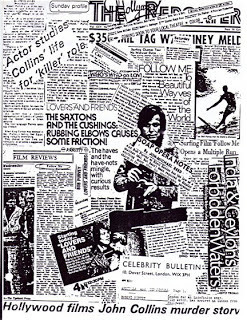 Last week, actor Robert Purvey contacted my researcher with a different story. He said that Martin had only half a script and asked Purvey to help write the story as they went along. They spent their days on location and their evenings feverishly preparing for the next day's shooting. Once the crew returned to Hollywood, there were additional studio scenes to shoot and post production costs skyrocketed, so the project was shelved.
Last week, actor Robert Purvey contacted my researcher with a different story. He said that Martin had only half a script and asked Purvey to help write the story as they went along. They spent their days on location and their evenings feverishly preparing for the next day's shooting. Once the crew returned to Hollywood, there were additional studio scenes to shoot and post production costs skyrocketed, so the project was shelved.Probably just as well. The story of the murders of these young woman deserves to be told accurately - not cobbled together like some mystery movie of the week. If William Martin's early film, Jacktown, is any indication, it is better that Now I Lay Me Down To Sleep never saw the light of day.
http://www.bobpurvey.com/biography.html
http://www.imdb.com/title/tt0182253/ Jacktown free movie download.
Published on May 04, 2012 10:53
May 2, 2012
Gregory A. Fournier Zug Island Web Radio Interview
 On Friday morning, I will be doing my first Skype interview on web radio, and I'm excited about it. There is a call-in contest where you can win one of two copies of
Zug Island: A Detroit Riot Novel
. The number to call is (646) 595-4326 - 1:00 PM Eastern time - 10:00 AM Pacific time. http://blogtalkradio.com/hollischapmanshow.
On Friday morning, I will be doing my first Skype interview on web radio, and I'm excited about it. There is a call-in contest where you can win one of two copies of
Zug Island: A Detroit Riot Novel
. The number to call is (646) 595-4326 - 1:00 PM Eastern time - 10:00 AM Pacific time. http://blogtalkradio.com/hollischapmanshow. This should be fun. Afterwards, the interview can be found on a continuous loop by accessing the Hollis Chapman Show archives or by running the link on my blog post next week. Hope you can join me.
Published on May 02, 2012 15:07
Gregory A. Fournier Zug Island Skyped Interview
 On Friday morning, I will be doing my first Skype interview on web radio, and I'm excited about it. There is a call-in contest where you can win one of two copies of
Zug Island: A Detroit Riot Novel
. The number to call is (646) 595-4326 - 1:00 PM Eastern time - 10:00 AM Pacific time. http://blogtalkradio.com/hollischapmanshow.
On Friday morning, I will be doing my first Skype interview on web radio, and I'm excited about it. There is a call-in contest where you can win one of two copies of
Zug Island: A Detroit Riot Novel
. The number to call is (646) 595-4326 - 1:00 PM Eastern time - 10:00 AM Pacific time. http://blogtalkradio.com/hollischapmanshow. This should be fun. Afterwards, the interview can be found on a continuous loop by accessing the Hollis Chapman Show archives or by running the link on my blog post next week. Hope you can join me.
Published on May 02, 2012 15:07
May 1, 2012
The Lost John Norman Collins Movie - Part One
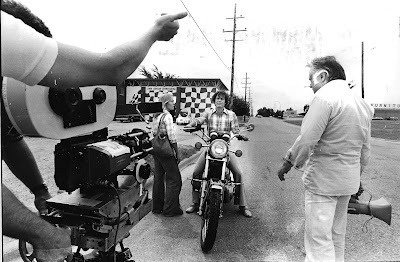
In early 1977, a film crew of thirty-five people from Hollywood descended upon the communities of Ypsilanti and Ann Arbor, Michigan, to make a film about John Norman Collins, the all-American boy and Eastern Michigan University student, who allegedly murdered seven young women in the area.
Producer/director/writer, William Martin, took five years to write the screenplay and insisted that it was not at all connected with The Michigan Murders, which was released a year earlier in 1976. Martin's movie was to be more of a mood piece about the community in crisis rather than "factual" details. The movie was entitled, Now I Lay Me Down To Sleep.
"It's not a police story," Martin told reporters. "The whole county was in terror for two years. I'm only doing it from the standpoint of what was running through the minds of the girls, what was happening in the community, and what was happening with the killer at large."
What was happening with the killer is still a story begging to be told. John Norman Collins has steadfastly maintained he is innocent.
The budget for this film ranged from early estimates of 1 million dollars to a soaring 2.5 million in total production costs. The film was slated by Paramount Pictures for its Ypsilanti premiere around Christmas time in 1978, but the film was never completed. Somewhere in a vault or storage locker lies footage from a film never before seen by the public.
Martin planned to change the names of the victims as Edward Keyes and others have done, but below and in my book on this subject, In the Shadow of the Water Tower, I've used the real names of the people and the actors who played them.
Malibu surf legend, Robert Purvey, was cast as John Norman Collins; Rory Calhoun portrayed Washtenaw County Sheriff, Douglas Harvey; Katherine Grayson, of 1940's MGM musical fame, was to play Collin's aunt, Sandra Leik; Peter Hurkos agreed to play himself with little or no persuasion; and local Detroit WXYZ anchorman, Bill Bonds, reprised his role as a field reporter which he had previously played in a couple of Planet of the Apes movies and Five Easy Pieces.
Reasons why the film was never completed range from John Collins lawyers trying to get a court injunction to stop production to personal threats against the producer. Recently, my researcher, Ryan Place, has been in contact with Robert Purvey who sheds new light on why this movie was never made. More on that in my next post.
To be continued...
Published on May 01, 2012 13:45
April 25, 2012
Blogging on the Cuff - Old School
 In an age where cursive writing is a lost art, most people prefer to print - if they are forced to write at all. But people today usually do so with an uneasy mixture of upper and lowercase letters, with little or no regard for the arcane concerns of punctuation or grammar.
In an age where cursive writing is a lost art, most people prefer to print - if they are forced to write at all. But people today usually do so with an uneasy mixture of upper and lowercase letters, with little or no regard for the arcane concerns of punctuation or grammar.These days, public school children get little or no instruction in cursive writing. They are trained to compose directly on the computer and edit as they go. I guess that's progress.
But for me, I find that a fragmented way to write though I suppose it is a more efficient and synergistic way to work. I prefer working my ideas out with pen and paper first. It is more tactile and flowing for me and lends itself to improvisational thinking. Once I get an idea of what I want to write and how I want to present it, the physical act of writing slows me down enough to get my ideas worked out on paper; then, I go to the computer to take advantage of its time saving editing and proofreading features.
I marvel at how the ancients wrote. The Egyptians used papyrus and paint; the Greeks used vellum and scrolls; the Romans used wax tablets and a stylus, while the Medieval monks used paper and ink. Shakespeare did marvelous work with ink and a sharpened goose quill. Even the mechanical striking of the old fashioned typewriter keys seems antiquated compared to the muted tapping of a modern keyboard. The immutable law of nature is that everything changes and for everything gained, something is lost.
That brings me to the M.C. Escher engraving, Drawing Hands, sketched in 1948. It has always fascinated me, but now, in this brave new world of electronic publishing and computer animation, it has gained new meaning for me. This lithograph typifies the artist's mad dash at creation and shows what can be accomplished with paper and ink when talent and imagination is applied.
Published on April 25, 2012 21:06
April 23, 2012
Henry Ford Museum Creates Titanic Walk Through Time
 When my brother Rick and I were kids in the early Sixties, we used to sneak into the Henry Ford Museum located in Dearborn, Michigan. These stolen moments in this world-famous museum were the most formative of my childhood. The outside of the old museum entrance was a replica of Independence Hall in Philadelphia.
When my brother Rick and I were kids in the early Sixties, we used to sneak into the Henry Ford Museum located in Dearborn, Michigan. These stolen moments in this world-famous museum were the most formative of my childhood. The outside of the old museum entrance was a replica of Independence Hall in Philadelphia.Inside the foyer, there was a wide staircase leading to what amounted to a shrine to Henry Ford that was free. Rick and I would lurk and wait for our chance to slip unnoticed past the often preoccupied ticket takers. Not so easy these days.
Today, the renovated museum has a new entrance with a bookstore and an incredible Imax theater added to the museum complex. Adjacent to the museum is Greenfield Village, an attraction in its own right. It replicates a nineteenth century village with many famous buildings of that era like the Wright Brothers Bicycle Shop and Thomas Edison's workshop, where the electric light bulb was invented.
 The indoor museum boasts having the restored bus made famous by Rosa Parks in Montgomery, Alabama. The Henry Ford Museum also has the chair President Lincoln was assassinated in at the Ford Theater in Washington DC. A grim irony is that the armchair is protected behind Plexiglas, and brown drops of the dying president's blood still stain the chair's red upholstered fabric.
The indoor museum boasts having the restored bus made famous by Rosa Parks in Montgomery, Alabama. The Henry Ford Museum also has the chair President Lincoln was assassinated in at the Ford Theater in Washington DC. A grim irony is that the armchair is protected behind Plexiglas, and brown drops of the dying president's blood still stain the chair's red upholstered fabric.Collectively, both museums are known as the Henry Ford.
In memory of the 100th Anniversary of the Titanic's tragic maiden cruise, the Henry Ford Museum has assembled an exhibit that does honor to the memory of those who died so many years ago. If you are in the Detroit area, don't miss this special exhibit.
http://blog.visitdetroit.com/entry/walk-through-titanic-henry-ford-museum.html
Published on April 23, 2012 00:00
April 20, 2012
Psychic Peter Hurkos and the John Norman Collins Case
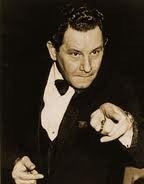 Dutchman Peter Hurkos billed himself as the first police psychic and parlayed that into a career in the 1950s and 1960s. After making many claims about his extrasensory abilities in Europe, he came to wider attention after he volunteered to look into the Stone of Scone theft from Westminster Abbey in 1951. He did so at his own expense without official sanction. Hurkos was among several others who were allowed to examine the throne where the stone should have been lodged.
Dutchman Peter Hurkos billed himself as the first police psychic and parlayed that into a career in the 1950s and 1960s. After making many claims about his extrasensory abilities in Europe, he came to wider attention after he volunteered to look into the Stone of Scone theft from Westminster Abbey in 1951. He did so at his own expense without official sanction. Hurkos was among several others who were allowed to examine the throne where the stone should have been lodged. Hurkos made a great show of it by doing a "cold" reading of the area in front of some French reporters, who wrote articles which described his examination of the area in great detail. Thanks to the French press and his adroit self-promotion, Peter Hurkos became a European sensation despite British Home Secretary, Chuter Ede's official statement made on behalf of the British government, "The gentleman in question... did not obtain any results whatsoever."
Peter Hurkos called his gift "psychometry" - the ability to see past-present-future associations by touching objects. He claims he discovered this ability after a serious accident. He was painting a building several stories up in Hague when he fell off a ladder and lapsed into a coma for several days. When he awoke in the hospital, he had the gift.
Hurkos was invited to The United States in 1956 by Andrija Puharich, a parapsychologist and researcher into ESP. After getting Puharich's public approval and a wealth of free publicity, he became a popular nightclub entertainer.
From time to time, Hurkos would involve himself in high-profile police cases such as The Boston Strangler, the Michigan Murders, and The Sharon Tate Murders. The Boston Police found Hurkos a nuisance. He was arrested and convicted of impersonating a police office trying to gather information he could later claim were psychic revelations. With the Manson case, he claimed to identify Charles Manson when it was Susan Atkins, Manson's supporter, who dropped his name in jail.
In the case of John Collins, he proclaimed that the murderer had blond hair and at other times said it was brown. He described the murderer as five foot five or six inches tall and weighing 140 pounds; Collins was over six feet tall and 180 pounds. All of Hurkos' other "revelations" regarding this case could have been easily derived from newspaper articles on the murders, which he insisted he never read. After an unsuccessful week in Ann Arbor, the psychic left for home discouraged, blaming his failure on lack of police cooperation.
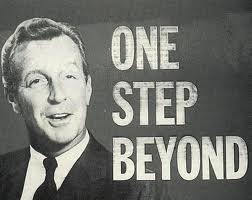 Peter Hurkos had an uncanny ability to promote himself on talk shows like The Tonight Show and The Merv Griffin Show. He appeared in several documentaries about himself, and he was portrayed in the movie version of The Boston Strangler by veteran actor, George Voskovec. Peter Hurkos played himself in the never-to-be released movie about John Collins and the coed killings called Now I Lay Me Down to Sleep.
Peter Hurkos had an uncanny ability to promote himself on talk shows like The Tonight Show and The Merv Griffin Show. He appeared in several documentaries about himself, and he was portrayed in the movie version of The Boston Strangler by veteran actor, George Voskovec. Peter Hurkos played himself in the never-to-be released movie about John Collins and the coed killings called Now I Lay Me Down to Sleep. In 1960, the futuristic show One Step Beyond, brought to you by Alcoa Aluminum and hosted by John Newland, produced a two part show on Peter Hurkos' life story. I've attached the YouTube link below which includes the show's vintage opening. If you are sufficiently interested, the rest of the episode's segments can be found on that page's right sidebar.
http://www.youtube.com/watch?v=RTXPzVIugsg
Published on April 20, 2012 09:25
April 18, 2012
Zug Island Wins Two Awards
When I found out I had won a Finalist Award in the USA Book News 2011 competition, I felt an immediate sense of accomplishment and validation. What for me was a quirky blue collar coming of age story about race relations in the Detroit suburbs was meaningful to others.

Since publication of Zug Island: A Detroit Riot Novel, one year ago this May, I have received many emails testifying to the unflinching honesty of my portrayal of a time in American history many people would prefer be left unwritten.
In February, I was surprised to discover that I had received another award for Zug Island, an Honorable Mention from the 2012 Los Angeles Book Festival competition. These awards have motivated me to forge ahead with my next writing project, The Water Tower, about the John Norman Collins murders in Michigan of the late Sixties.
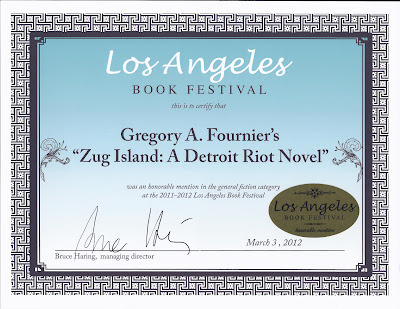
If you are looking for an entertaining and meaningful summer read, click on the Zug Island book cover in the right sidebar for more information. Available from Amazon in a quality paperback edition and Kindle format.

Since publication of Zug Island: A Detroit Riot Novel, one year ago this May, I have received many emails testifying to the unflinching honesty of my portrayal of a time in American history many people would prefer be left unwritten.
In February, I was surprised to discover that I had received another award for Zug Island, an Honorable Mention from the 2012 Los Angeles Book Festival competition. These awards have motivated me to forge ahead with my next writing project, The Water Tower, about the John Norman Collins murders in Michigan of the late Sixties.

If you are looking for an entertaining and meaningful summer read, click on the Zug Island book cover in the right sidebar for more information. Available from Amazon in a quality paperback edition and Kindle format.
Published on April 18, 2012 18:34



